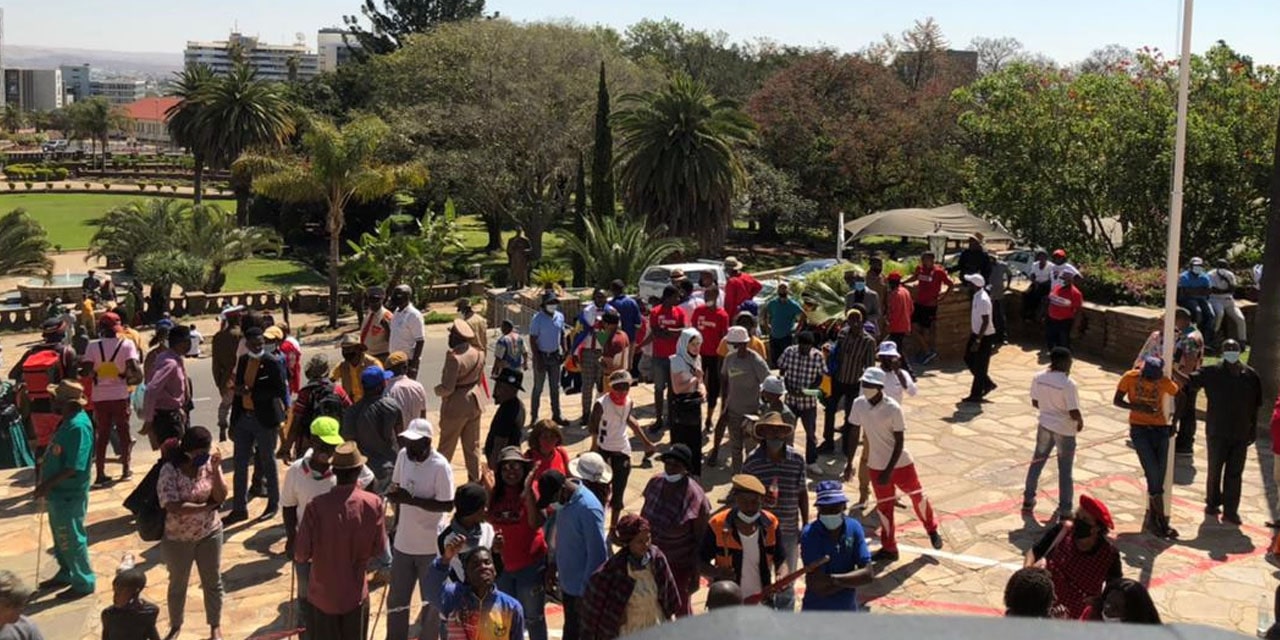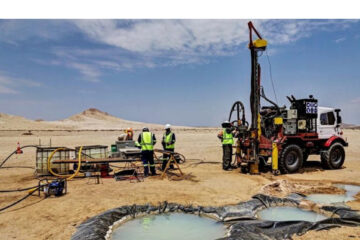Eba Kandovazu
More than a hundred descendants of the survivors of the 1904-1908 genocide of the Ovaherero, Ovambanderu and Nama today took to the streets of Windhoek to demonstrate against tabling of a motion to discuss the Joint Declaration between the Namibian government and its German counterpart.
The motion to discuss the Joint Declaration was tabled by the Minister of Defense and Veteran Affairs, Frans Kapofi, in the National Assembly today. The march, spearheaded by various political parties such as the Landless People’s Movement(LPM), Rally for Democracy and Progress (RDP}, Popular Democratic Movement(PDM), Namibia Economic Freedom Fighters(NEFF),National Unity Democratic Organisation(Nudo),Swanu and lndependent Patriots for Change(IPC) handed over a petition to Deputy National Assembly Speaker, Loide Kasingo. Protesters initially demanded to see the Speaker, Peter Katjavivi. The group marched against Germany’s N$18.4 billion offer as reparation for the Nama, Ovaherero and Ovambanderu genocide, calling on a restart of the negotiation process inclusive of the directly affected communities.
“We, in one voice and without ambiguity reject the Reconciliation and Reconciliation Agreement and Joint Declaration by the governments of the Federal Republic of Germany and [Republic of Namibia] and call for the Namibian Parliament to also do the same and restart negotiations. We as the victims’ descendants and other affected communities, unequivocally state that the so-called agreement is a flagrant disregard of our legitimate reparation and restitution demands,” Joyce Muzengua read the petition.
PDM President, McHenry Venaani; IPC President Panduleni Itula; LPM Chief Leader Bernadus Swaartbooi and Nudo President, Ester Muinjangue also took part in the march from a bus stop in Katutura Central Constituency to Parliament. After the tabling of the Joint Declaration and motivation thereof by Kapofi, the National Assembly start to debate it.
“The general principle that reparations are appropriate and required in cases of gross human rights violations such as genocide has been affirmed by the United Nations General Assembly, in the 2005 Basic Principles and Guidelines to a Remedy and Reparations for victims of gross violations of lnternational Human Rights Law and Serious Violations of lnternational Humanitarian Law. The so-called Reconstruction and Reconciliation Agreement also deviates materially from the 2006 Resolution of the Parliament of Namibia on Genocide of the Ovaherero and Nama communities,” Muzengua says.
Although the protesters also requested that the document be first read in the National Assembly before any debates today, Kasingo responded “That’s not how it works”.
“I have received the petition and I will hand it over to the Speaker,”she said.




